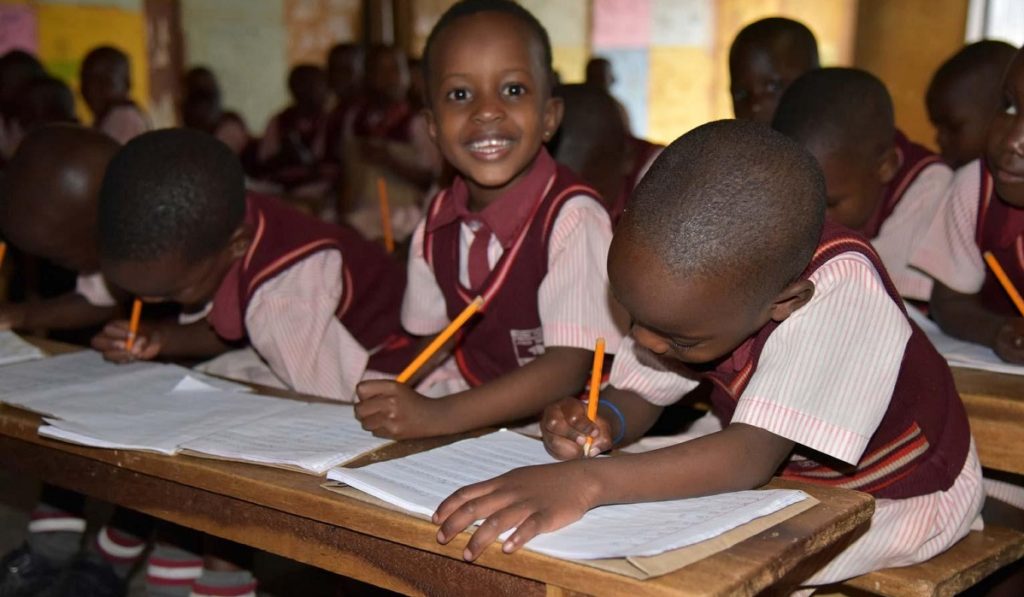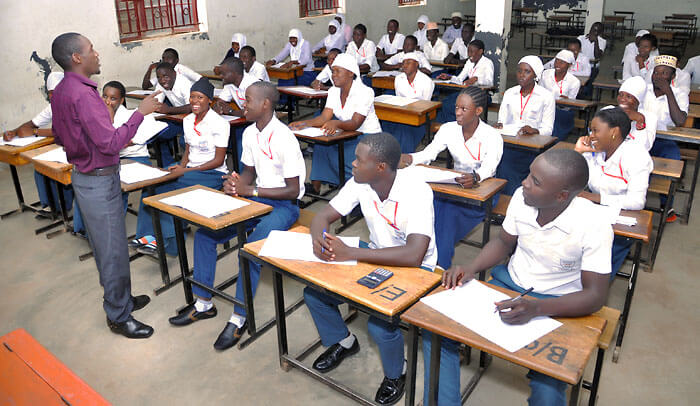The World Bank’s Board of Executive Directors has approved $150 million (about Shs554 billion) to enable greater access to higher-quality secondary education among Ugandan children in safer and better-equipped learning environments that are also supportive of girls’ education.
The World Bank says the project is financed by an International Development Association credit of $90 million (about Shs332 billion), and a grant of $60 million (about Shs221 billion) from the Window on Host Communities and Refugees, adding that the Uganda Secondary Education Expansion Project (USEEP) will directly benefit about 2.5 million learners. USEEP complements other World Bank support to improve education in Uganda.
As per the plan, a total of 116 new lower secondary day schools will reportedly be constructed, and 61 schools will benefit from additional classrooms in underserved districts, creating 70,300 new spaces for learners, including 30,000 in areas hosting refugees. Schools will be fully furnished and equipped to accommodate two streams of students.
The project will provide student textbooks and teacher guides, support continuous teacher professional development, and implement an accelerated education program for children who are not currently attending school.
“Uganda needs to expand access to secondary education to enhance its human capital. This is essential if the country is to improve the future wellbeing of its citizens while also enabling the economy to grow through their increased productivity,” said Tony Thompson, World Bank country manager.
Adding, “This project aims to provide new school spaces while at the same time creating a conducive learning environment which is safe promotes students’ personal growth and self-esteem, and increases retention for both boys and girls. It includes special measures to reduce the prevalence of early pregnancies and to assist young mothers to re-enter lower secondary education when they drop out”.

Uganda is a pioneer in Sub-Saharan Africa in implementing policies to achieve universal access to primary and secondary education. Since the introduction of Universal Secondary Education, enrolment has increased at an average of six per cent annually – growing from a total of 954,000 students enrolled in 2007 to around 1.5 million in 2017, according to a 2018 World Bank report on education in Africa.
The rate of growth, however, remains low compared to 25 per cent in Kenya and 16 per cent in Rwanda. Further, the enrolment rate at the secondary level in Uganda has stagnated since 2007 measuring only 28 per cent in 2017, much below the rates in neighbouring countries.
Fifty-nine per cent of secondary schools in Uganda are nongovernment. A big percentage of learners drop out or fail to meet the minimum proficiency in reading and mathematics by the time they are completing basic education due to insufficient spaces in public schools and learning aids and low levels of skilled and motivated teachers.
Children from poor families and those in underserved areas are less likely to learn, while early pregnancy, child marriage and the high cost of schooling are the main reasons why few girls complete secondary education.
In refugee-hosting districts, about 11 per cent of refugee children are enrolled in secondary education, of which 33 per cent are girls; compared to 18 per cent for the host communities – far below the national average of 28 per cent. Uganda is the largest refugee-hosting country in Africa and third largest in the world with nearly 1.4 million refugees.
Uganda’s current budget expenditure on education is among the lowest in the region. During the last five years, education expenditure as a share of the national budget was declining in Uganda, reaching 10 percent in 2019/20 while the average for Sub-Saharan Africa (SSA) is 16 percent and has been steadily increasing over the same period.
“Uganda’s school-age population is growing very fast increasing demand for quality education. This project is following a new model of expanding secondary education in Uganda that optimizes capital investment as well as recurrent costs while introducing quality measures. We hope that the proposed model will enhance prospects for further sustainable expansion of secondary education in Uganda,” said Kirill Vasiliev, Senior Education Specialist and Task Team Leader.
If you would like your article/opinion to be published on Uganda’s most authoritative news platform, send your submission on: [email protected]. You can also follow DailyExpress on WhatsApp and on Twitter (X) for realtime updates.



